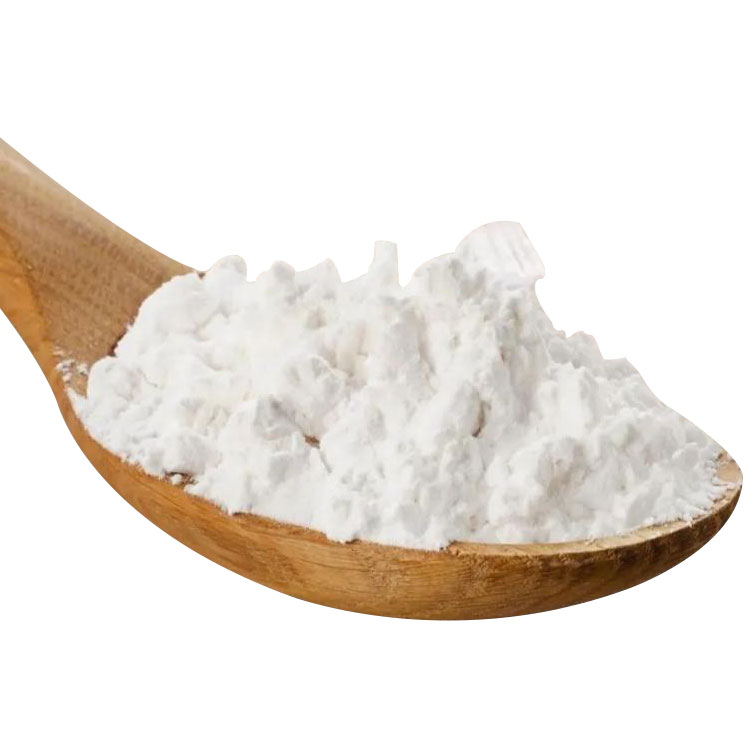Modified Corn Starch: Health and Clean Label Trends
2025-09-26
Table of Contents
-
What is Modified Corn Starch?
-
The Functional Advantages of Modified Corn Starch
-
Health and Nutrition Considerations
-
Navigating the Clean Label Movement
-
Key Product Parameters and Specifications
-
Frequently Asked Questions (FAQ)
1. What is Modified Corn Starch?
Modified corn starch is a functional ingredient derived from common corn starch through physical, enzymatic, or chemical processes. These modifications are designed to enhance its performance characteristics, making it more suitable for a wide range of industrial food applications. It's crucial to understand that "modified" refers to the alteration of its inherent properties and does not inherently relate to genetic modification, though non-GMO variants are widely available. This ingredient is prized for its ability to provide consistency, stability, and desired texture in products that undergo various stresses like heat, acid, or freezing.
2. The Functional Advantages of Modified Corn Starch
The primary reason for using modified corn starch is its superior functionality compared to its native counterpart. These enhancements address specific challenges in food manufacturing. Key benefits include:
-
Enhanced Heat Stability: Withstands high-temperature processes like retorting (canning) and UHT treatment without breaking down, preventing syneresis (weeping).
-
Improved Acid Stability: Maintains thickening power in acidic environments, such as fruit pie fillings and vinaigrettes, where native starch would lose viscosity.
-
Excellent Freeze/Thaw Stability: Prevents the breakdown of structure in frozen foods, ensuring the product maintains its texture after thawing.
-
Improved Clarity and Texture: Certain modifications provide a clearer, glossier gel and a smoother mouthfeel, which is desirable in sauces and glazes.
The specific type of modified corn starch selected will depend on the exact functional requirements of the final product.
3. Health and Nutrition Considerations
From a nutritional standpoint, modified corn starch is primarily a source of carbohydrates and contains minimal protein, fat, or micronutrients. Its caloric value is similar to that of native starch. For many consumers, the health perception of modified corn starch is evolving. While it has sometimes been viewed negatively due to its "processed" nature, it often allows for the reduction of other less-desirable ingredients. For instance, a well-chosen modified corn starch can effectively replace fats or gums in creating a creamy texture, potentially leading to a reduction in overall calories and a cleaner ingredient list.
4. Navigating the Clean Label Movement
The clean label trend presents both a challenge and an opportunity for modified corn starch. Consumers are increasingly seeking ingredients they recognize and perceive as natural. In response, the industry has developed a new generation of modified corn starches that comply with clean label demands. These include:
-
Physically Modified Starches: Processes like heat treatment or pre-gelatinization are often considered more "natural" and can be labeled simply as "modified corn starch" or "corn starch" in many markets.
-
Enzymatically Modified Starches: Using enzymes to alter the starch structure is another clean-label-friendly method.
When sourcing a clean label modified corn starch, it is essential to verify the modification process and the permissible labeling claims with your supplier to ensure it aligns with your brand's positioning.
5. Key Product Parameters and Specifications
Selecting the right modified corn starch requires a detailed understanding of its technical specifications. Key parameters to evaluate include:
-
Modification Type: Physical, Enzymatic, or Chemical (e.g., cross-linked, stabilized).
-
Viscosity: The thickening power, often measured by a Brabender Viscoamylograph or Rapid Visco Analyzer (RVA).
-
Gel Texture: Described as long/short, cohesive, or rubbery.
-
pH Stability: The range of acidity over which it maintains stability.
-
Shear Stability: Resistance to breakdown under mechanical agitation.
-
Certifications: Non-GMO Project Verified, Organic, Gluten-Free, etc.
The following table compares common types of modified corn starch based on their functional properties:
| Parameter | Native Corn Starch | Cross-Linked Starch | Stabilized Starch (e.g., Acetylated) | Clean Label (Physically Modified) |
|---|---|---|---|---|
| Heat Resistance | Low | High | Moderate | Moderate to High |
| Acid Stability | Low | High | Moderate | Moderate |
| Freeze/Thaw Stability | Low | Moderate | High | High |
| Gel Clarity | Opaque | Opaque | Clear | Variable |
| Label Friendliness | High | Lower | Lower | High |
6. Frequently Asked Questions (FAQ)
Q1: Is modified corn starch safe to consume?
Yes, modified corn starch is safe for consumption. The modifications are strictly controlled, and all types used in food are approved by regulatory bodies like the FDA in the United States and EFSA in Europe. They are globally recognized as safe food ingredients.
Q2: What is the difference between "modified" corn starch and genetically modified (GMO) corn?
These are two distinct concepts. "Modified" refers to the industrial process applied to the starch after it is extracted from the corn kernel to change its functional properties. Genetically Modified Organism (GMO) refers to the genetic makeup of the corn plant itself. A modified corn starch can be sourced from either GMO or non-GMO corn.
Q3: Can modified corn starch be used in gluten-free products?
Absolutely. Since corn is a gluten-free grain, modified corn starch is an excellent and widely used thickening and stabilizing agent in gluten-free food formulations, helping to improve the texture and structure of products like gluten-free bread and sauces.
If you are very interested in JINAN SPARK IMP & EXP's products or have any questions, please feel free to contact us.





